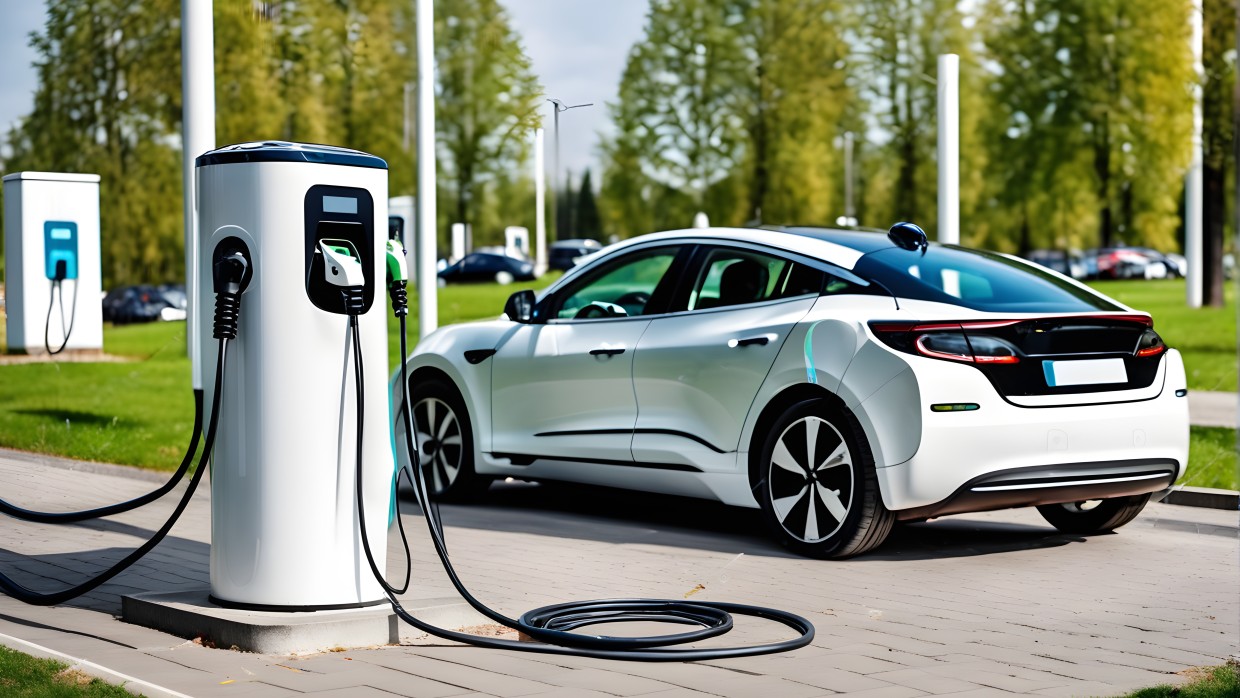News
News
E-mobility Is Stuck in First Gear
The latest data from the German Federal Motor Transport Authority (KBA) clearly shows that electric mobility is currently not running as smoothly as the car industry and the governing politicians in Brussels and Berlin had intended. The number of customers with a desire for a new electric car seems to be decreasing rather than increasing. The trend that was already apparent at the end of last year and was predicted by many car experts has now become a reality.
Although the number of newly registered cars in February 2024 totalled 217,388 and showed an increase of 5.4 per cent compared to the previous year, the demand for purely electric cars – known as BEVs which is short for "battery electric vehicle" – showed a significant decline with a drop of over 15 per cent.
And for the advocates of electric vehicles, there is even more reason to be worried. Of all the new cars available, it was those with combustion engines that enjoyed renewed popularity despite plans to completely phase them out of the EU market from 2035. Sales of new petrol cars increased by 2.3 per cent and diesel cars went up by as much as 9.7 per cent. The strongest growth was recorded by plug-in hybrids with an impressive 22.3 per cent.
So What Has Dampened the Mood?
And why is buying an electric car no fun anymore? It can safely be assumed that there are all kinds of reasons. After all, every car customer has their own idea of the perfect new vehicle and what it should be capable of. One possible factor in the decline could be the end of the purchase premium for electric cars, commonly known as the environmental bonus. However, it is unlikely to be the only cause.
E-mobility still suffers from a number of teething troubles that can deter some customers, even though the latest generation of battery-driven vehicles is already benefitting from long years of development. Deterrents include the still comparatively low range and the high prices as well as the lack of charging stations in rural areas and particularly in Eastern Europe. This makes long-distance transport with electric trucks and holiday trips to such regions equally difficult.
Commercial customers who buy electric cars for larger fleets are particularly susceptible to additional risk factors such as high repair costs, sometimes even in the case of minor damage. Above all, the residual value of electric vehicles is uncertain. On the one hand, prices may come under pressure due to discounting wars between car manufacturers. On the other hand, second-hand electric cars suffer from high moral wear and tear due to the rapid technical developments in this segment.
The consequences can be seen in the hire car company Sixt saying goodbye to Tesla at the end of last year and US car hire company Hertz replacing thousands of electric cars with combustion-engine models because the costs are too high.
The Long Road to 15 million
All these factors are reflected not only in the sales statistics but also in the number of electric cars on the roads in Germany. In 2023, there was a considerable gap between the level of new registrations and the stock of electric cars. Some 524,000 new BEVs were registered last year. However, the number of electric cars in Germany only increased by 396,000. This suggests that many new electric cars are sold abroad just a few months after their initial registration.
The problem is that the German government's target of having around 15 million electric vehicles on the country's roads by 2030 is becoming increasingly unlikely. In fact, to reach this target, around two million new and exclusively electric vehicles would need to be registered each year. So far, there have been fewer than 500,000 registrations, even in the peak year of 2023. Demand would therefore need to quadruple. However, predictions for this year are actually showing a decline.
The Benefits Still Need to Be Proven
Nevertheless, electric cars do have some clear advantages. They are ideal for short journeys as they can move quietly and emission-free through the streets. And they are much more efficient than combustion engines. They are even able to recuperate energy when braking. None of the cars with a combustion engine can do that. In a comprehensive study, the German Automobile Association (ADAC) recently examined the efficiency and benefits of so-called recuperation and found that electric cars recover an average of 22 per cent of the energy they draw from the battery.
The Issue of Electricity Costs
Despite all the benefits, if you are not using electricity from your own solar panels, you may be faced with high electricity costs. What is more, these costs are not likely to go down any time soon. This is because about half of the electricity price in Germany consists of state taxes, levies and surcharges as well as grid fees. Grid fees are particularly likely to continue rising as there is still much work to be done to complete the expansion of the necessary infrastructure for distributing and storing wind power and solar power.
On top of all this, the Federal Audit Office published a special report at the beginning of March on implementing the energy transition. According to the head of the Audit Office, Kay Scheller, the report found that "the secure supply of electricity is under threat, electricity is expensive and the federal government is unable to comprehensively assess the impact of the energy transition on the landscape, nature and the environment".
This information does not exactly inspire confidence. After all, motorists are used to transparency and comfort. They know you can refuel anywhere and easily compare most prices.
An additional problem is that a significant portion of our electricity is still generated using fossil fuels. Therefore, electric cars are not necessarily more ecological. It looks as if a whole lot more electrical energy will need to flow before e-mobility becomes fully mature.



